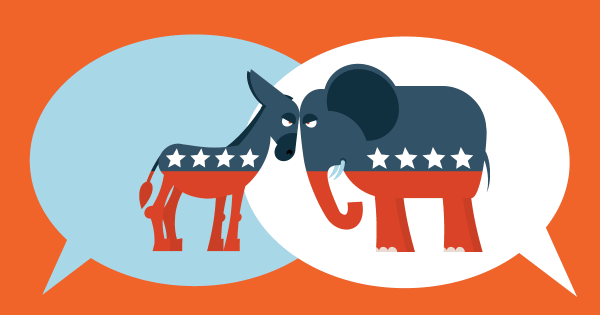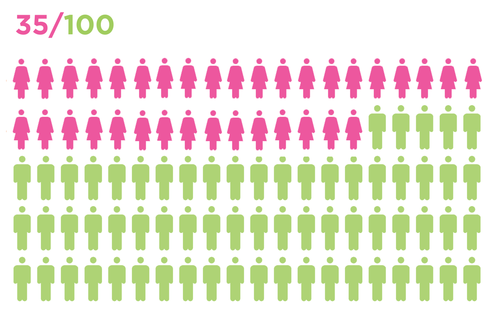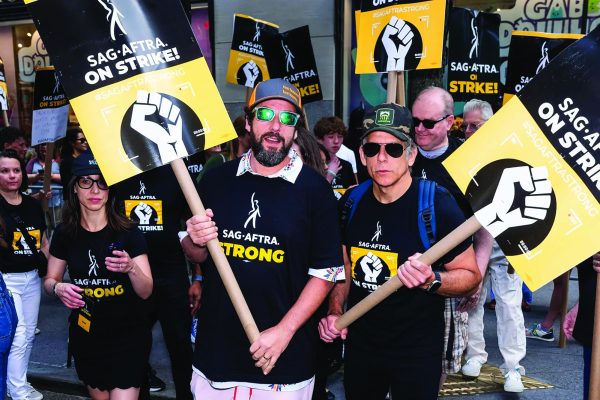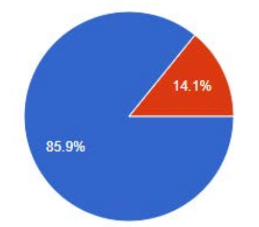Russia’s invasion of Ukraine affects entire globe
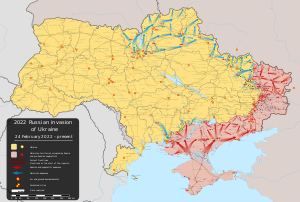
Russia’s invasion on Ukraine. Courtesy of wikipedia.org.
On Feb. 24, 2022, Russian President Vladimir V. Putin ordered the invasion of Ukraine. More than 200,000 Russian troops were amassed along the Russia-Ukraine border, Belarus-Ukraine border, the Crimean Peninsula, and the breakaway Luhansk and Donetsk People’s Republics (LPR and DPR) in addition to warships in the Black Sea. According to CBC, the combined Russian military presence near Ukraine is roughly equivalent to the entire Ukrainian military.
President of the United States Joe Biden declared “the beginning of a Russian invasion of Ukraine two days earlier, on Feb. 22, following the highly controversial decision to move Russian troops into the LPR and DPR. Russia decided to recognize the long-disputed separatist states, including their full territorial claims. According to CNN, Russia claims that it recognized the breakaway republics to “protect and preserve” residents from a potential “bloodbath.”
In response to the invasion, many countries have levied economic sanctions against Russia, hoping to strike at the Russian economy by cutting off trade and imposing penalties on Russian banks and billionaires. These countries include Australia, Japan, New Zealand, Taiwan, the United Kingdom and the United States. The European Union has also imposed sanctions. The New York Times purports that these sanctions could devastate the Russian economy over time, but they could also affect the economies of other countries.
Putin’s motivations for invading Russia are strategic, both militarily and economically. According to the Los Angeles Times, Putin has cited the collapse of the Soviet Union as one of the greatest disasters in modern history, elaborating that he neither views Ukraine as a sovereign nation nor the Ukrainian people as distinct from Russians. The Soviet Union and the Russian Empire before it controlled a far greater land area than Russia does today, including 15 modern countries.
If NATO (North Atlantic Treaty Organization) appears to represent a tangible threat to the stability of Russia, maintaining control of a buffer zone such as the former Soviet states in eastern Europe would make a NATO-led invasion far easier to fend off. And the Soviet Union not only controlled those states but maintained a strong influence over much of the rest of Eastern Europe via the Eastern Bloc or Warsaw Pact.
In terms of his economic motivations, Putin is looking to secure Ukraine’s oil supply. According to Worldometer, Ukraine contains about 395,000,000 barrels of oil. Russia is currently one of the largest exporters of oil and natural gas globally. According to the New York Times, nearly 40% of Europe’s oil comes from Russia. Newsscientist reports 17% of global gas output and 13% of oil come from Russia. The Council on Foreign Relations lists Russia as the only European petrostate, a type of country that is economically dependent on gas and oil. If Russia were to capture Ukraine, it would gain access to many new oil reserves. Conversely, Ukraine could become an economic rival if Russia does not capture it.





